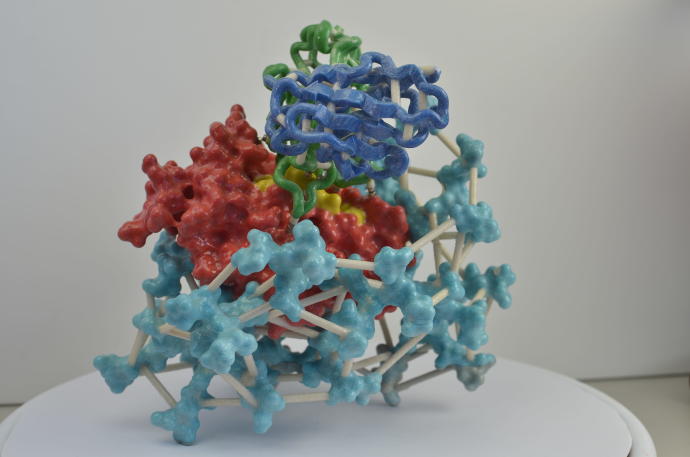The Omicron strain reduces the effectiveness of corona vaccines. To understand how much we need to worry, we asked Prof. Eran Bacharach from Tel Aviv University to explain why this is happening and how long it will take to create a new vaccine. We received in response the most comprehensive explanation we had read yet about our immune system and how it fights viruses.
To understand how corona vaccines affect the human body and why mutations in the virus can impair their effectiveness, one needs to know how the immune system functions. This system is a very sophisticated system that fights viruses, limits their incubation period in the body and prevents the diseases they can cause.
Viruses are made up of a variety of proteins, which aren’t found in our body. So, the immune system recognizes viral proteins as "foreign" and produces diverse responses against them. For example, the formation of antibodies, which are substances that can adhere in a very specific way to foreign proteins. This adhesion prevents the viruses from acting. The immune system has an amazing ability to detect any protein that is foreign to the body, and to create many antibodies that will attach to this protein and neutralize it.
The corona virus invades the body's cells through a protein called the envelope protein or spike protein, and "enslaves" them to produce many new viruses. These new viruses are released from the cells as they’re killed, then enter new cells to begin further rounds of virus production. If this cyclical process isn’t stopped, an increasing number of viruses will form, many cells will die, and damage will be done to the body.

Fortunately, in most cases of infection, the immune system quickly "learns" the virus proteins, creating a response that neutralizes them and the spread of the virus. This is achieved by making antibodies against the envelope protein of the virus. The antibodies attach to the envelope protein and prevent the virus from entering new cells. Therefore, as soon as the virus enters our body, a "race" begins between the virus that spreads in the body's cells and the immune system that works to stop this spread and prevent disease.
Another miraculous phenomenon of the immune system is its ability to "remember" the virus that attacked the body. This is reflected in the shortening of the immune system's response time if the same (or similar) virus tries to re-enter the body's cells. In this case, the system will neutralize the virus very quickly, even using antibodies against the virus that already exist in the body.
So, when we have a vaccine that contains only the envelope protein (and not the rest of the virus proteins), the immune system will recognize that protein as a foreign protein and create an immune response against it.
In this case, the immune memory against the protein (which includes the formation of antibodies against the envelope protein) will be formed without the presence of the virus. In other words, the vaccine allows the immune system to learn and respond to the virus protein, without risking exposure to the virus itself and without entering a race against it.
Prof. Eran Bacharach is the head of a research laboratory for molecular virology at the Department of Cell Research and Immunology at Tel Aviv University. He first wrote this response for The Jerusalem Post's sister publication Walla!
